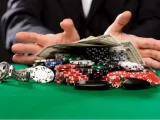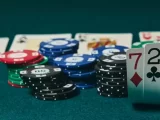
How to Avoid the Gambler’s Fallacy
July 28, 2022Throughout the game of chance, you might encounter the Gambler’s fallacy. Essentially, this is the mistaken belief that you can win or lose based on a specific event. In reality, this is a common mistake. As such, we should avoid being victims of it at all costs. Here are some tips on avoiding it. Read on to learn more about it. Hopefully, these tips will help you avoid being victimized by this fallacy.
First, understand the gambler’s fallacy. The fallacy is most easily recognized when we think of the odds of a certain event. For example, if we imagine that we tossed a coin three times, the probability of the next one being an ace is 50%. That’s simply not true, and we’ve all made similar mistakes. Instead, the gambler’s fallacy is an important concept in decision-making.
The Fallacy can have negative consequences for institutions and professions. In institutions, failure to recognize statistical independence can lead them to attribute the results of one event to a whole population or event. For instance, the government may blame an unexplained market crash on immigration programs and close the borders. On the other hand, a physicist may fail to recognize that a particle’s movement is random but that it conforms to scientific laws or patterns.
Oftentimes, the gambler’s fallacy occurs when we are betting on a game or lottery. The fallacy occurs when we believe that if a coin has landed on heads in four or five previous flips, it will land on the tails side next. Ultimately, there is no way to know which side of the coin will land. A coin has a 50 percent chance of landing on heads in each flip.
The Gambler’s fallacy involves the incorrect belief that a series of independent events can be linked together. For instance, if a coin has flipped twice, and the first flip came up head, the second flip is equally likely to turn up the same way. The gambler’s fallacy is often a result of a lack of understanding of probability. If the outcome of one event is not a result of the other, the gambler will fall victim to this fallacy.
The gambler’s fallacy is one of the biggest mistakes people make when it comes to gambling. This fallacy is also known as the Monte Carlo fallacy, and is an example of a cognitive bias related to randomness. When a football team has a long-running streak of winning, the next time that the game is played, they may be more likely to win than they have in the past. But this is not the case, and many people fall victim to this fallacy.






